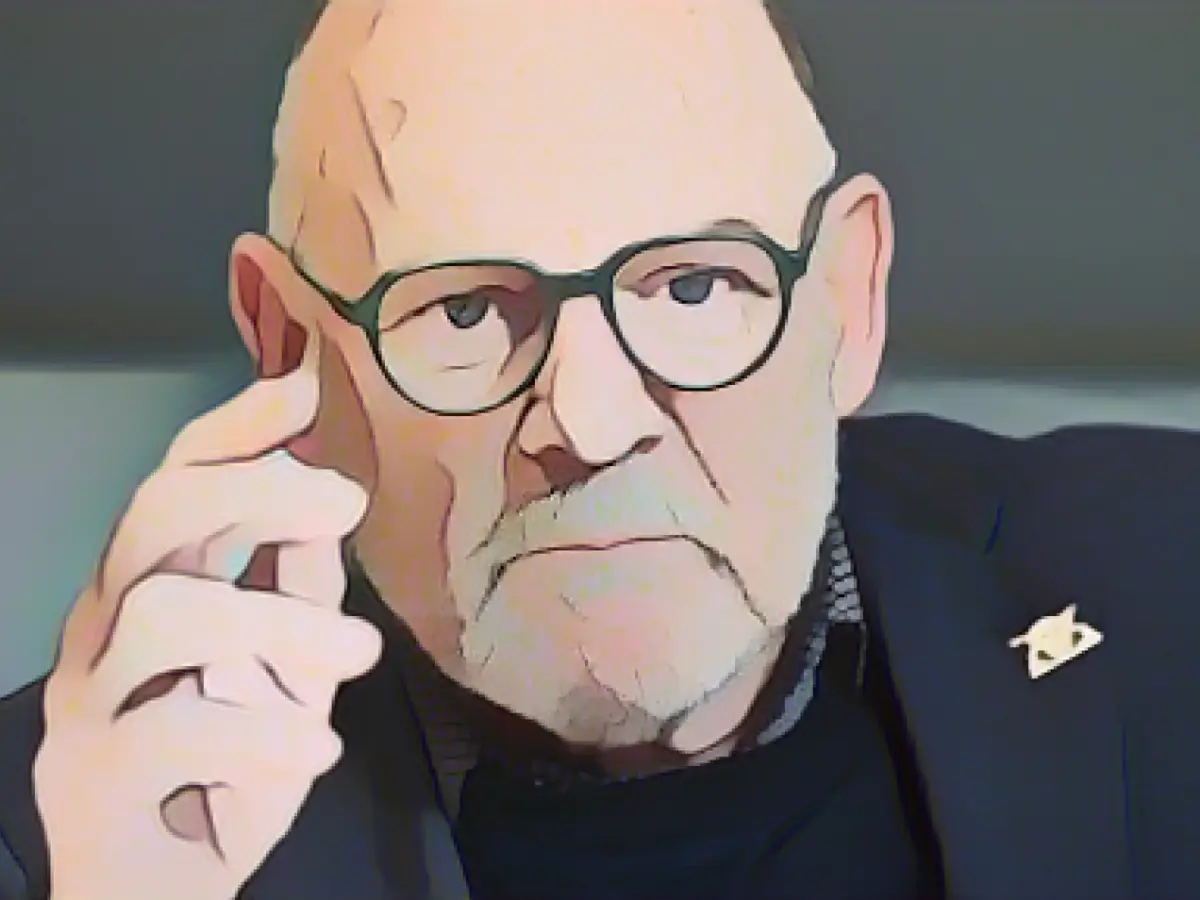Minister of Transport - "Not just cycling": Hermann calls for focus on e-cars
In order to reduce CO2 emissions in the transport sector as quickly as possible, Baden-Württemberg's Transport Minister Winfried Hermann (Greens) believes that the best solution is a rapid expansion of e-mobility. "If you want to pursue a climate protection-oriented transport policy in Germany, you also have to look at the car and can't just talk about cycling and public transport," the Green politician told the German Press Agency in Stuttgart.
Even if many people were to walk or cycle more, this would only have a modest effect on CO2 emissions. "75 percent of all transportation and all movements are made by car or truck. If you make road traffic climate-neutral, you have achieved a huge chunk that you can't do with other means of transport," said Hermann.
"Due to the fact that there are now a relatively large number of electric cars on offer, it would be possible to achieve large CO2 effects in a comparatively short time," said Hermann. Significantly more than by expanding the rail network. This would also make sense, but would only bring benefits in the future. "Everything we do now in terms of rail infrastructure will only have an impact on CO2 reduction in the 2030s," said Hermann. More electric cars, on the other hand, would have a direct effect.
Hermann expressed clear criticism of the end of subsidies for electric cars. In mid-December, the Federal Ministry of Economics announced at short notice that no new applications for funding could be submitted from the next day onwards. "This is of course incomprehensible and therefore annoying. My main criticism is that this decision came suddenly overnight," said Hermann. He fears that fewer people will buy an e-car as a result of the end of the subsidy. "Even if the cut is fundamentally sensible, there is now a risk that this abrupt intervention will once again stall the transformation to electromobility, even though we actually need an acceleration."
Instead of simply cutting subsidies for e-cars, the Green politician believes it would make sense to think about better subsidies. For example, there is a proposal to charge climate-damaging vehicles more and use this to finance a bonus for climate-friendly cars. "In this case, it would cost the state nothing at all if it were to charge more for heavy, expensive diesel or petrol vehicles and use the additional revenue to organize the bonus for the switch," said Hermann. He himself would only grant a corresponding bonus for smaller vehicles.
Read also:
- A clan member is punished here
- Traffic lawyer warns: Don't talk to the police!
- Will he be convicted as Jutta's murderer after 37 years?
- He also wanted to kill his cousin
- Winfried Hermann, the Green politician from Baden-Württemberg, argued that reducing CO2 emissions in Germany's transportation sector requires focusing not only on cycling but also on e-cars, as stated during an interview with the German Press Agency in Stuttgart.
- Hermann emphasized that while encouraging bicycle traffic is important, it would only have a limited impact on CO2 emissions, as cars and trucks account for 75% of all transportation and movements in Germany.
- In Stuttgart, Hermann highlighted that the rapid expansion of e-mobility is crucial to achieve significant CO2 reductions quickly, as there are now numerous electric car options available, which can lead to substantial emissions reductions in a shorter timeframe compared to expanding the rail network.
- The Green politician expressed his disappointment with the sudden announcement by the Federal Ministry of Economics to end subsidies for electric cars, as this decision came unexpectedly and could potentially discourage more people from purchasing e-cars, stalling the transformation to electromobility.
- Hermann proposed a more thoughtful approach to subsidies for electric cars, suggesting that charging climate-damaging vehicles more could help finance a bonus for climate-friendly cars, allowing the state to support the shift to electromobility without incurring any additional costs.
- In the traffic and transportation sector of Germany, Baden-Württemberg's Transport Minister Winfried Hermann advocates for a new focus on e-cars, bicycle traffic, and other green solutions to help reduce CO2 emissions and combat climate change.
Source: www.stern.de








